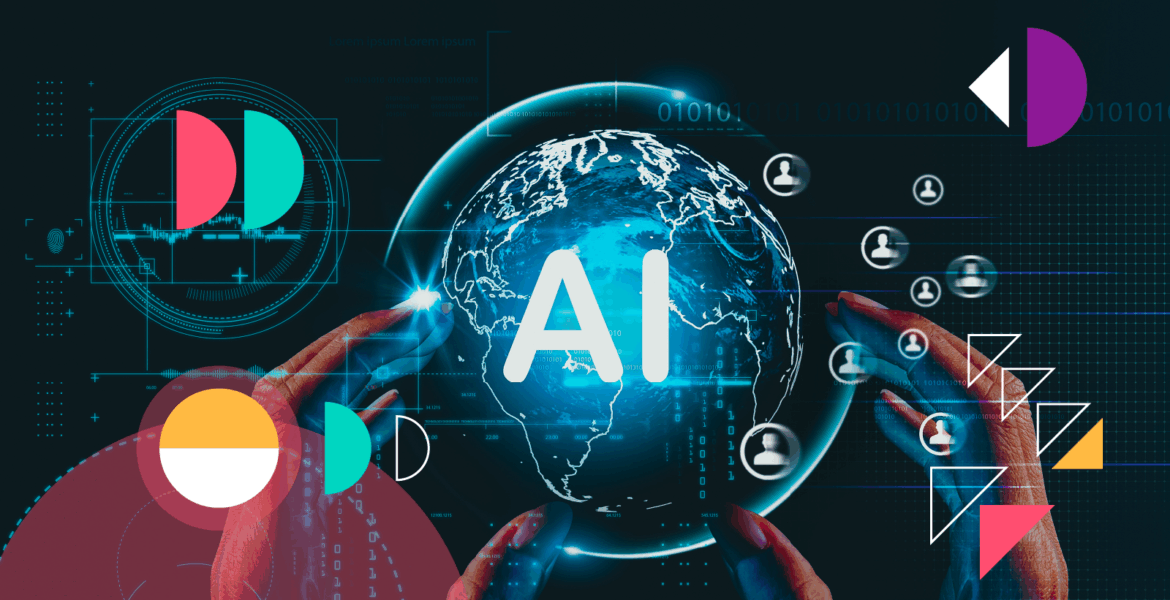Artificial Intelligence (AI) has evolved from a buzzword to a business essential—especially in the world of marketing. With the ability to process massive datasets, personalize experiences at scale, and automate repetitive tasks, AI is redefining how brands connect with consumers.
Whether you’re a global enterprise or a fast-growing startup, understanding how AI can enhance your marketing strategy is no longer optional—it’s foundational.
Here’s what you need to know.
What Is AI in Marketing?
In simple terms, AI in marketing refers to the use of machine learning, natural language processing, computer vision, and other intelligent technologies to automate, optimize, and enhance marketing efforts.
Unlike traditional automation, which relies on fixed rules, AI systems learn from data. They adapt, improve over time, and can make complex decisions based on patterns and predictions—often faster and more accurately than humans.
AI marketing tools range from chatbots and recommendation engines to predictive analytics platforms and generative AI content tools like ChatGPT.
How AI Is Being Used in Marketing Today
AI is already deeply integrated into many parts of the modern marketing stack. Here are the most common and impactful use cases:
- Personalization at Scale
AI helps brands tailor experiences for individuals—whether it’s product recommendations on an e-commerce site, personalized emails, or dynamic website content. Companies like Amazon and Netflix have built their customer experiences around AI-powered personalization engines.
- Predictive Analytics
AI can analyze historical data to forecast future outcomes and improve decision-making and allow marketers to be more proactive. Some examples:
- Which leads are most likely to convert
- Which customers are at risk of churning
- What time/day is best to send an email
- Content Creation and Optimization
With generative AI, marketers can create headlines, ad copy, blogs, social captions, and product descriptions in seconds. AI can also analyze which content formats, styles, or keywords are performing best and make real-time adjustments.
- Media Buying and Programmatic Advertising
AI powers programmatic ad platforms, automatically buying and placing digital ads in the most effective placements based on performance data. It adjusts bids, creatives, and targeting in real time to optimize results.
- Chatbots and Virtual Assistants
AI chatbots handle customer service, guide users through websites, and even assist in shopping—24/7. This improves customer satisfaction while reducing manual labor.
- Social Listening and Sentiment Analysis
AI tools monitor social media to identify trends, track brand mentions, and assess customer sentiment. Marketers can act quickly on public perception, feedback, or crises.
Why AI Matters in Marketing
AI is transforming marketing from an art fueled by intuition to a science backed by data. Here’s why it’s become so critical:
- Efficiency and Cost Savings
AI automates time-consuming tasks—like A/B testing, lead scoring, and data analysis—freeing teams to focus on strategy and creativity.
- Better Customer Experiences
Today’s consumers expect relevant, personalized interactions. AI makes that possible across channels and touchpoints. - Data-Driven Decisions
AI thrives on data. It helps marketers unlock insights from customer behavior, campaign performance, and sales trends that would be impossible to spot manually. - Competitive Advantage
Brands using AI are more agile, efficient, and responsive. They can optimize faster, target smarter, and deliver value in real time—leaving slower competitors behind.
The Future of AI in Marketing
We’re only scratching the surface of what’s possible. Here’s what’s coming next:
- Hyper-Personalization
Beyond broad segments, AI will deliver truly 1:1 marketing experiences—curated offers, dynamic pricing, and real-time messaging tailored to each customer’s context.
- AI-Augmented Creativity
AI won’t replace human creativity—but it will supercharge it. Marketers will work alongside AI to generate concepts, visuals, audio, and video faster and more effectively than ever before.
- Voice and Visual Search
AI will drive the next wave of search behavior. Consumers will speak or snap photos instead of typing, and AI will decode intent to deliver relevant results instantly.
- Privacy-First AI
As regulations tighten and third-party cookies fade, first-party data and consent-based personalization will become essential. AI will help marketers honor privacy while still delivering relevance.
- Marketing Co-Pilots
AI assistants—like ChatGPT-style bots integrated into CRM, email tools, or CMS platforms—will help marketers ideate, write, plan, and execute campaigns in real time.
Getting Started with AI in Marketing
You don’t need a massive budget or in-house data science team to start using AI. Here are a few accessible ways SMBs and marketers can begin:
- Use AI content tools (e.g., Jasper, Copy.ai) to write and refine copy
- Deploy email automation platforms with predictive send times (e.g., Mailchimp, Klaviyo)
- Launch chatbots with tools like Intercom, Drift, or ManyChat
- Try AI-powered ad platforms like Meta Ads or Google Performance Max
- Explore customer insights using tools like HubSpot, Salesforce Einstein, or Adobe Sensei
AI is Now
Artificial Intelligence is no longer the future of marketing—it’s the now. From boosting productivity and precision to enabling smarter, more human-centered experiences, AI is revolutionizing how brands operate.
Whether you’re a solo marketer or leading a global team, embracing AI isn’t just a smart move—it’s a strategic imperative. The earlier you start, the more prepared you’ll be to lead in the next era of marketing.



